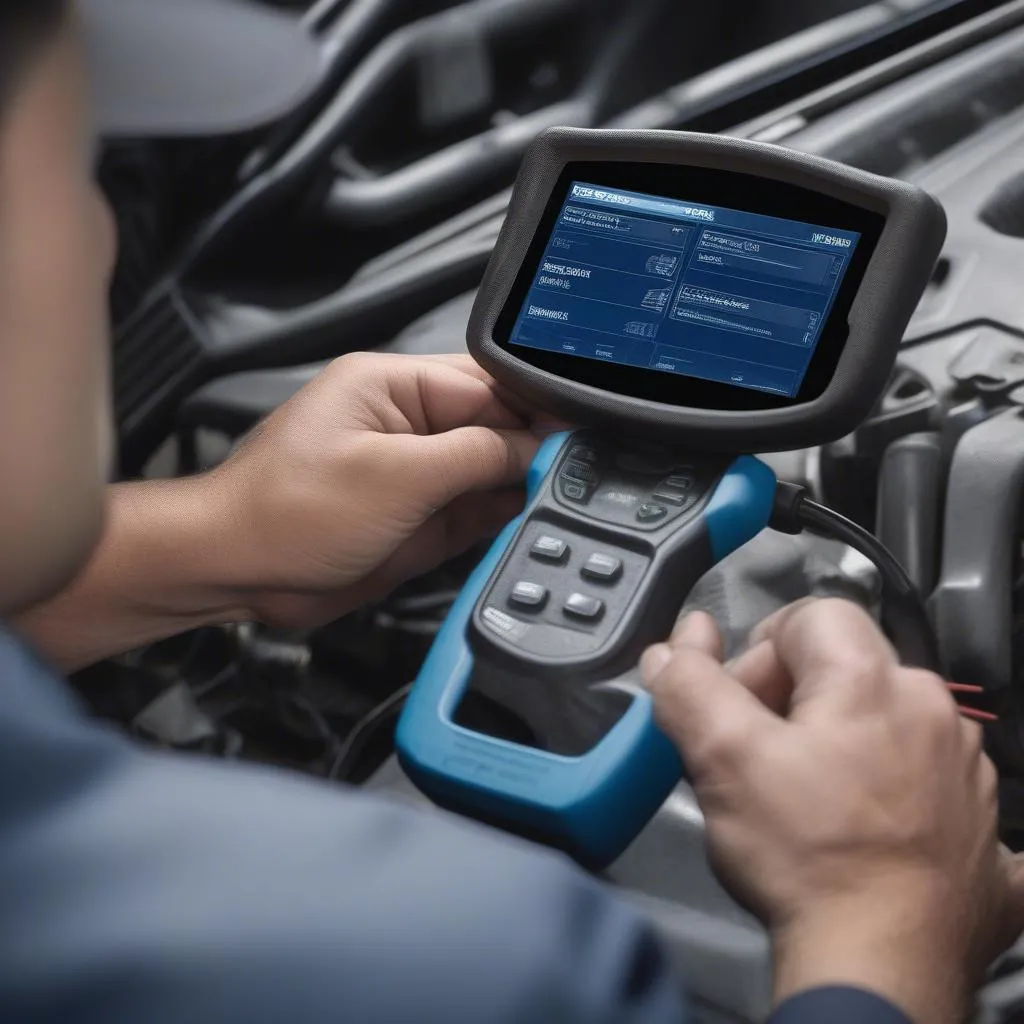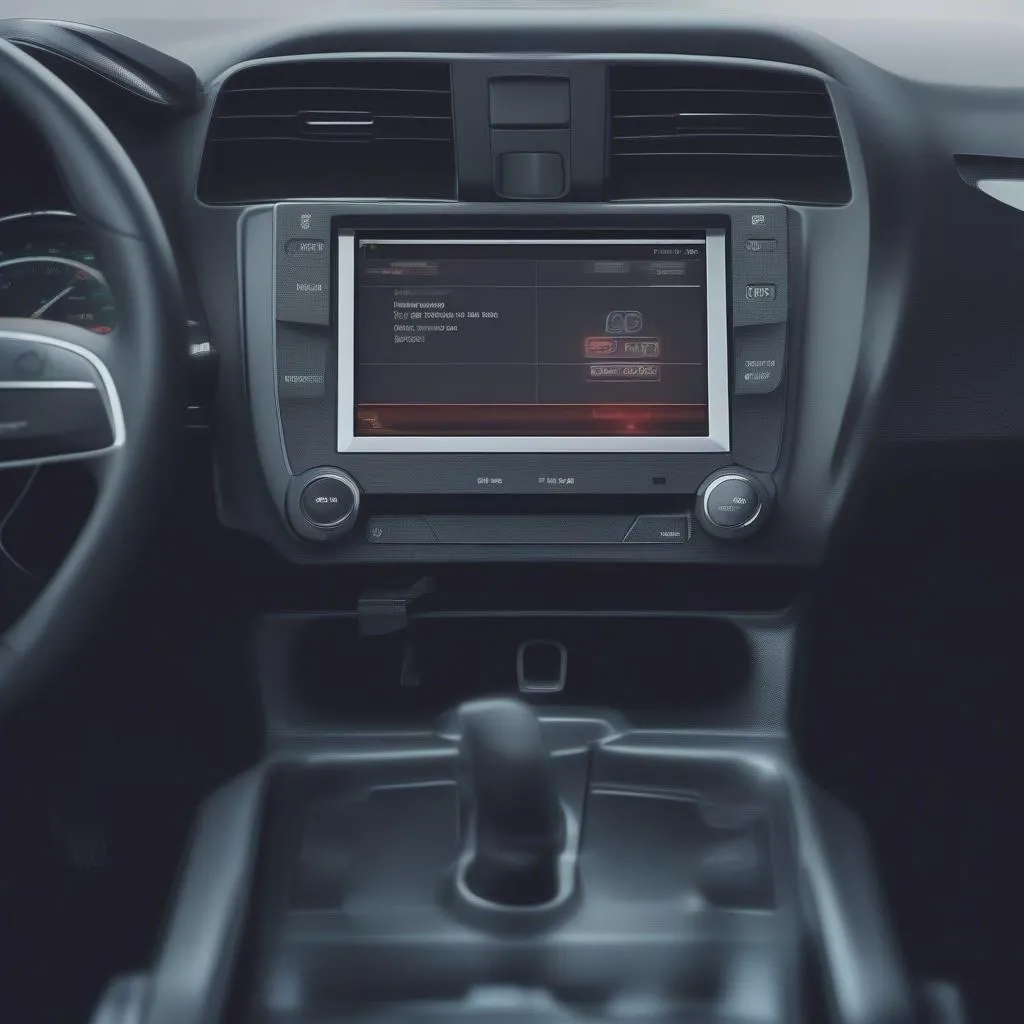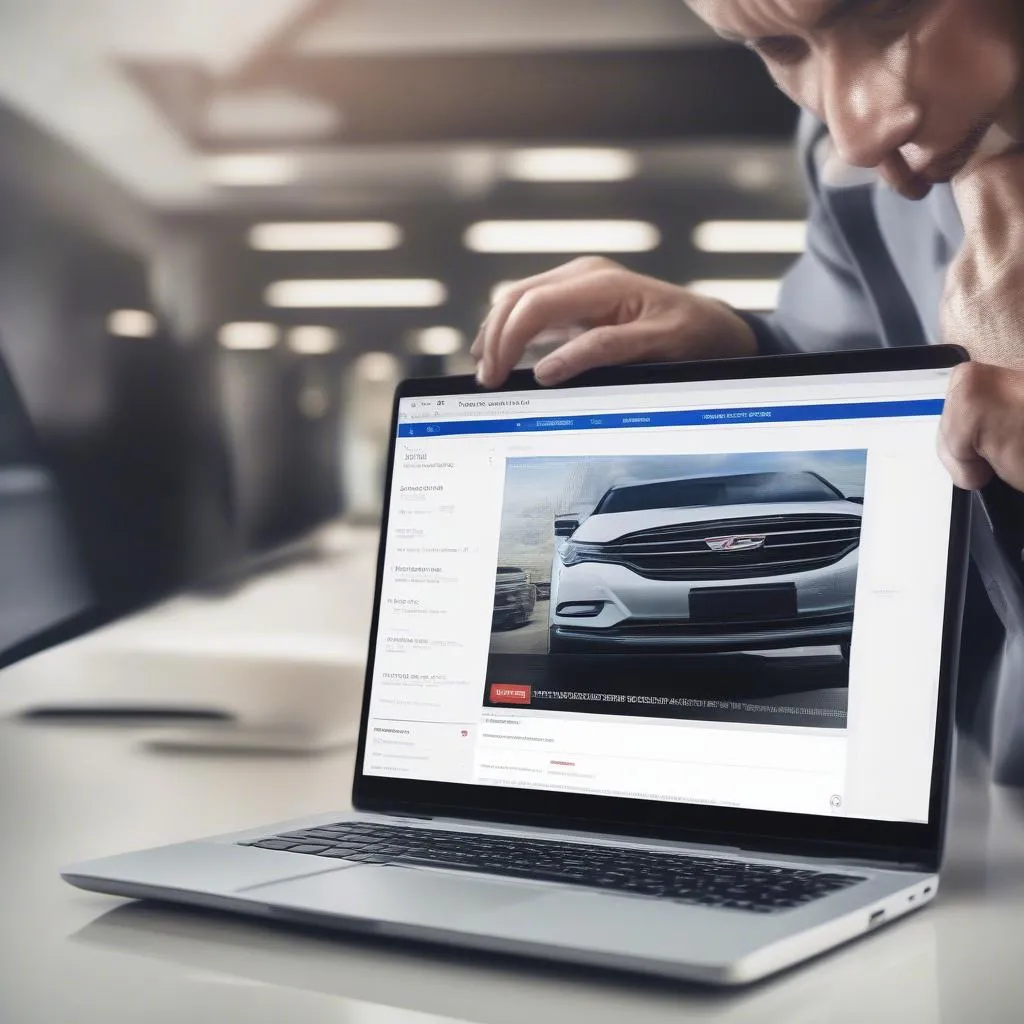Imagine this: you’re a proud owner of a sleek 2022 Audi A4, cruising down the California coast. Suddenly, the check engine light throws a wrench in your road trip. You pull into a garage in sunny San Diego, and the mechanic whips out an OBD scan tool. He plugs it in, but instead of spitting out codes, it shows an error. He scratches his head and says, “This scanner might not be compatible with your car’s VIN.”
Have you ever wondered if that scenario is even possible? Are OBD scan tools really VIN specific? Let’s dive deep into the world of OBD scanners and unravel the truth.
Decoding the VIN and OBD Connection
Before we answer the big question, let’s understand what we’re dealing with:
What’s a VIN?
The VIN, or Vehicle Identification Number, is like your car’s fingerprint – a unique 17-character code that identifies everything from its manufacturer and model year to its engine size and assembly plant.
And an OBD Scan Tool?
An OBD, or On-Board Diagnostics, scan tool is a device that connects to your car’s computer system through the OBD-II port (usually located under the dashboard). It reads and displays diagnostic trouble codes (DTCs) stored in the car’s computer, giving you insights into potential problems.
Now, the million-dollar question: Are they connected?
The short answer is: not directly.
OBD scan tools primarily communicate with your car’s Engine Control Unit (ECU) to retrieve and interpret DTCs. While the ECU contains your car’s VIN, the scan tool doesn’t actually use this information for its basic functions.
Why the Confusion Then?
You might be wondering why the mechanic in our story had trouble with the scanner. Here’s where things get a bit nuanced:
Software and Compatibility
Some advanced OBD scan tools, especially those designed for professional use or specific car brands, come loaded with specialized software. This software might be tailored to certain vehicle makes, models, or even specific model years.
For instance, a high-end dealer-level scan tool designed for European cars, like the AUTEL MaxiSys MS909 might have separate software modules for BMW, Mercedes-Benz, or Audi vehicles. This allows for more in-depth diagnostics and access to manufacturer-specific systems.
In such cases, using the wrong software or an outdated version could lead to compatibility issues, even if the scanner physically connects to the OBD-II port.
Communication Protocols
Over time, car manufacturers have developed different communication protocols for their vehicles. Older cars might use protocols like ISO 9141-2 or KWP2000, while newer vehicles often use CAN bus systems.
Most generic OBD scan tools support a wide range of protocols, ensuring compatibility across various makes and models. However, certain specialized scanners might be designed to work exclusively with specific protocols, limiting their compatibility.
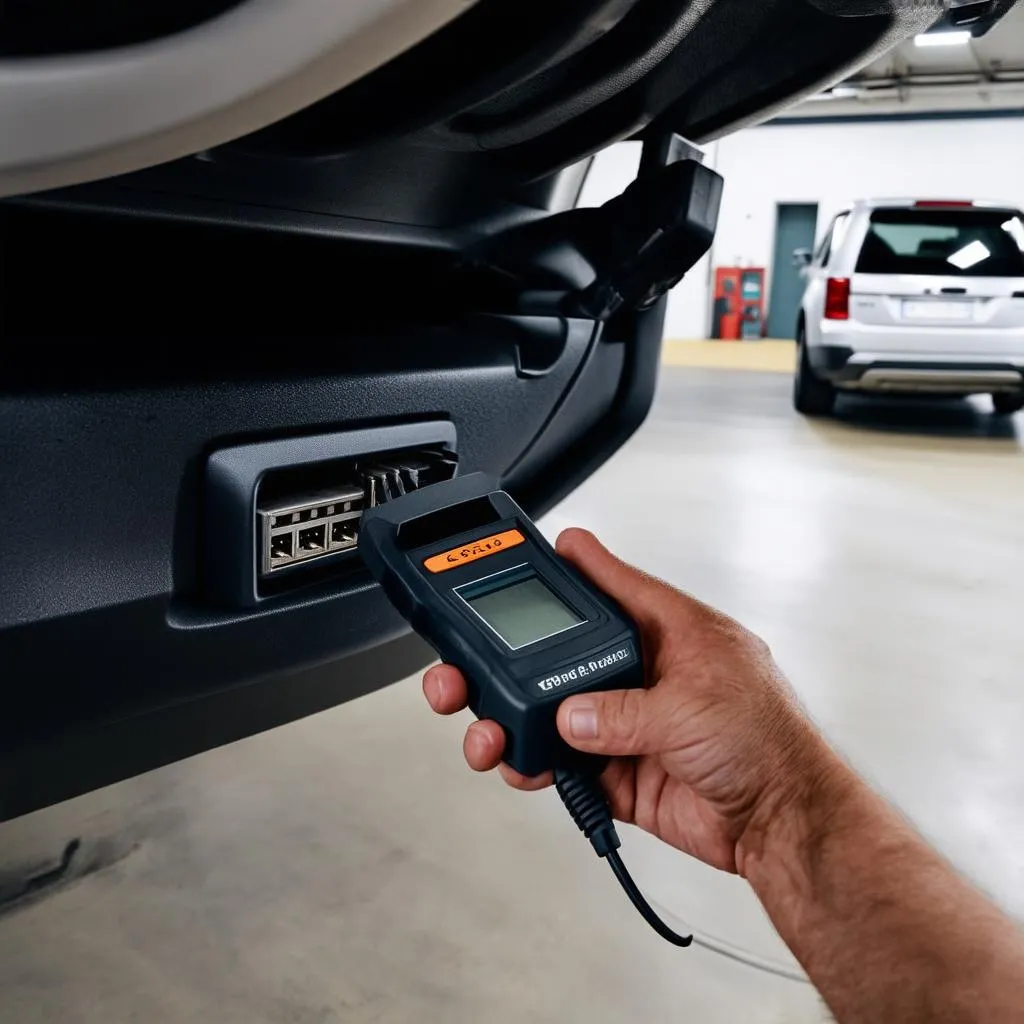 OBD Scanner Connected to a Car
OBD Scanner Connected to a Car
Common Questions About OBD Scan Tools and VINs
Here are some questions car owners frequently ask about OBD scan tools and their relationship with VINs:
1. Do I need my VIN to buy an OBD scan tool?
No, you generally don’t need your VIN to purchase a generic OBD scan tool. However, if you’re looking for a specialized scanner for a specific car make or model, having your VIN handy can help you choose the right tool.
2. Can an OBD scan tool change my VIN?
Absolutely not! An OBD scan tool cannot modify your car’s VIN. The VIN is embedded in the vehicle’s computer system and physical components and cannot be altered through the OBD-II port. Tampering with a VIN is illegal and could land you in serious trouble.
3. What if my OBD scan tool isn’t working?
If your scan tool isn’t working, it’s likely due to reasons other than VIN incompatibility. Here are a few things to check:
- OBD-II Port: Ensure the port is clean and free of debris.
- Connection: Double-check the connection between the scanner and the port.
- Software: Make sure your scan tool’s software is up to date.
- Compatibility: If you’re using a specialized scanner, confirm it’s compatible with your car’s make, model, and year.
- Fuse: Check the fuse related to the OBD-II port in your car’s fuse box.
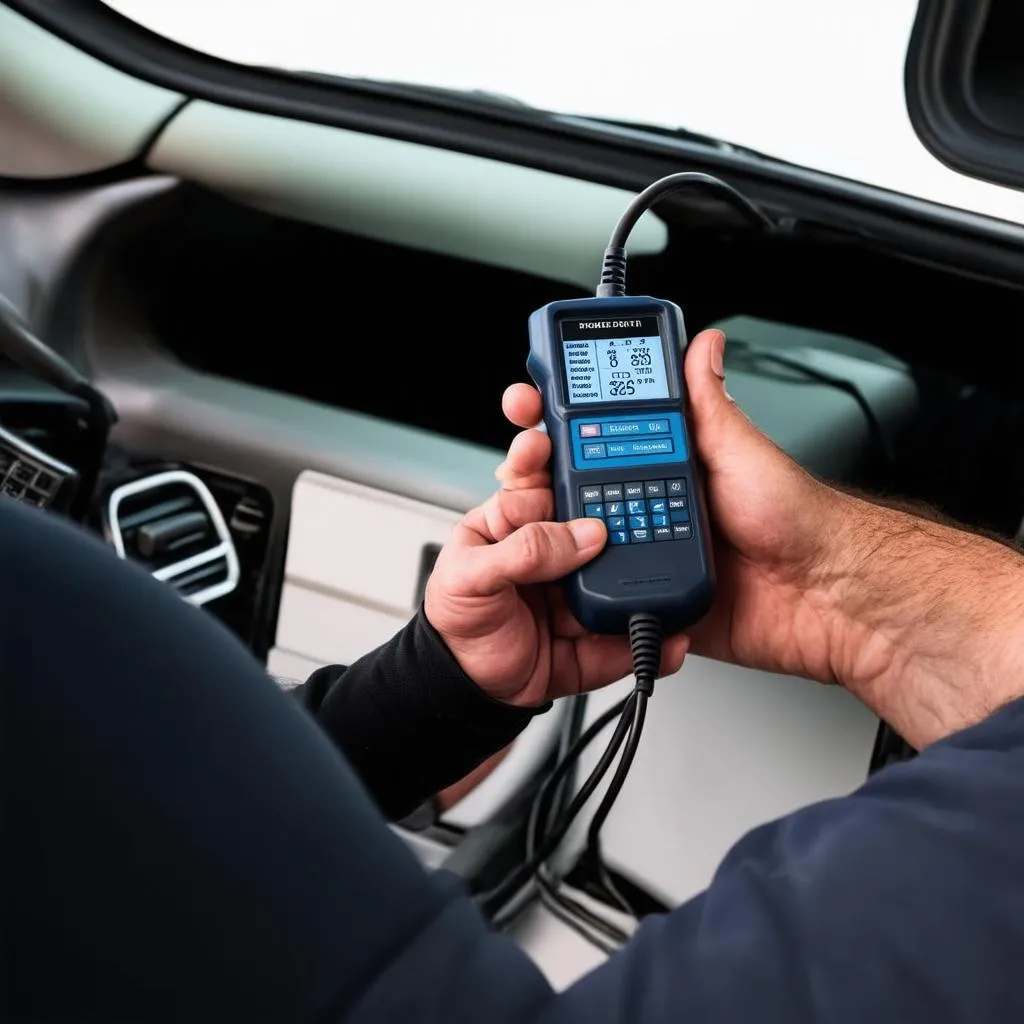 Mechanic using OBD Scanner on a Car
Mechanic using OBD Scanner on a Car
Finding the Right OBD Scan Tool
Choosing the right OBD scan tool depends on your needs and expertise:
- DIYers: A basic or mid-range OBD scan tool that supports a wide range of protocols should suffice. Look for features like code reading, clearing, and live data streaming.
- Professionals: Advanced scan tools with manufacturer-specific software, bi-directional controls, and advanced programming capabilities are essential.
- Enthusiasts: Consider scan tools that offer features like performance data logging, customizability, and compatibility with mobile apps.
For a comprehensive guide on using OBD scan tools, check out our article on How to Use a Scan Tool.
Need Help with Your Car’s Diagnostics?
Diagnosing car problems can be tricky. If you’re facing persistent issues or need expert assistance, don’t hesitate to reach out. Our team of automotive experts is available 24/7 to provide guidance and support.
Contact us via WhatsApp at +84767531508. We’re here to help you get back on the road with confidence!
